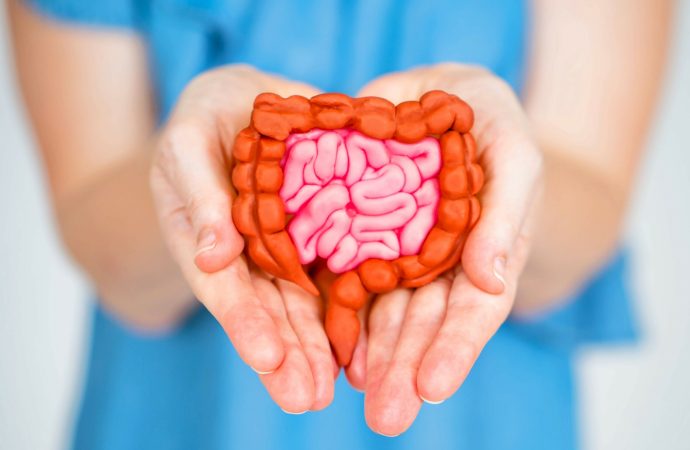Introduction Your digestive system is more important than you might think. It’s not only responsible for breaking down food but also for absorbing nutrients, supporting your immune system, and keeping your energy levels steady. When your gut is healthy, you feel lighter, more energetic, and less prone to discomforts like bloating, constipation, or indigestion. The
Introduction
Your digestive system is more important than you might think. It’s not only responsible for breaking down food but also for absorbing nutrients, supporting your immune system, and keeping your energy levels steady. When your gut is healthy, you feel lighter, more energetic, and less prone to discomforts like bloating, constipation, or indigestion.
The good news is that taking care of your digestive health doesn’t require complicated routines or expensive treatments. Small, consistent habits can make a big difference. In this guide, we’ll explore simple lifestyle changes that can help you keep your gut working at its best.
Eat a Balanced, Fiber-Rich Diet
One of the simplest and most effective ways to support digestion is to include plenty of fiber in your meals. Fiber adds bulk to your stool, helps regulate bowel movements, and feeds the beneficial bacteria in your gut.
Foods like fruits, vegetables, whole grains, beans, and nuts are excellent sources of both soluble and insoluble fiber. Soluble fiber helps soften stools and can lower cholesterol, while insoluble fiber keeps your digestive system moving smoothly. Aim to fill at least half of your plate with plant-based foods for the best results.
Stay Hydrated Throughout the Day
Water is essential for every function in your body, and digestion is no exception. Staying hydrated helps break down food, dissolve nutrients, and keep stools soft for easy elimination.
Make it a habit to drink water regularly, rather than waiting until you feel thirsty. Herbal teas, coconut water, and water-rich foods like cucumbers and melons can also help you meet your daily hydration needs. Avoid drinking too many sugary beverages, as they can upset your gut balance.
Eat Mindfully and Slowly

Image by: Yandex.com
How you eat is just as important as what you eat. Eating too quickly can lead to swallowing excess air, causing bloating and discomfort. It can also make it harder for your stomach to properly digest food.
Take smaller bites, chew thoroughly, and give yourself time to enjoy your meal. Mindful eating allows your body to register fullness signals, reducing the risk of overeating and giving your digestive system the time it needs to work efficiently.
Include Probiotics and Prebiotics
A healthy gut relies on a balanced population of good bacteria. Probiotics are live bacteria that help maintain this balance, while prebiotics are fibers that feed these bacteria. Together, they help your digestive system work better and support your immune health.
Probiotic-rich foods include yogurt, kefir, kimchi, sauerkraut, and miso. Prebiotics can be found in garlic, onions, bananas, and asparagus. Adding both to your diet regularly can promote a thriving gut microbiome.
Limit Processed and Fatty Foods
While an occasional treat is fine, a diet high in processed foods, fried meals, and saturated fats can slow digestion and cause discomfort. These foods can also harm your gut bacteria over time, leading to imbalances that may affect your overall health.
Try replacing processed snacks with whole food options and cooking with healthy fats like olive oil. Choosing grilled, baked, or steamed meals over fried ones can also help reduce digestive strain.
Stay Physically Active
Movement helps more than just your muscles—it also benefits your digestive system. Regular exercise stimulates the natural contractions of your intestines, which helps move food through your digestive tract more efficiently.
You don’t have to engage in intense workouts to see benefits. Even light activities like walking, stretching, or yoga can promote better digestion. Aim for at least 30 minutes of movement most days of the week.
Manage Stress for a Healthier Gut
Your brain and gut are closely connected, which means stress can directly affect your digestion. High stress levels can lead to problems like stomachaches, diarrhea, or constipation.
Incorporating stress-management techniques such as deep breathing, meditation, or light exercise can help keep your digestive system calm and balanced. Spending time outdoors or engaging in hobbies you enjoy can also improve your mood and digestion.
Get Enough Quality Sleep
A lack of sleep can disrupt many body functions, including digestion. Poor sleep affects the balance of hormones that regulate appetite and can slow down your gut’s natural rhythm.
Aim for 7–9 hours of quality sleep each night. Create a relaxing bedtime routine, avoid screens before bed, and keep your sleeping environment cool and comfortable. A well-rested body digests food more effectively.
Listen to Your Body’s Signals
Your body often gives you clues about what it needs. Pay attention to signs like bloating, discomfort, or changes in bowel habits. These signals can help you identify foods or habits that might be affecting your digestion.
Keeping a simple food and symptom journal can be a useful way to track patterns and identify triggers. This information can be shared with a healthcare professional if needed.
Avoid Overeating and Late-Night Meals
Eating large portions or snacking late at night can put extra strain on your digestive system. Lying down soon after eating can also make it harder for your stomach to process food properly.
Try to eat moderate portions and allow a few hours between your last meal and bedtime. This gives your body time to digest and reduces the risk of discomfort while sleeping.
Conclusion
Good digestive health is the foundation of overall well-being. By eating a balanced diet rich in fiber, staying hydrated, including probiotics and prebiotics, and making time for regular activity, you can keep your gut functioning at its best. Reducing stress, getting quality sleep, and paying attention to your body’s signals will also help you maintain a healthy digestive system. Small changes practiced consistently can lead to lasting benefits, leaving you with more energy, comfort, and confidence in your daily life.

















Leave a Comment
Your email address will not be published. Required fields are marked with *